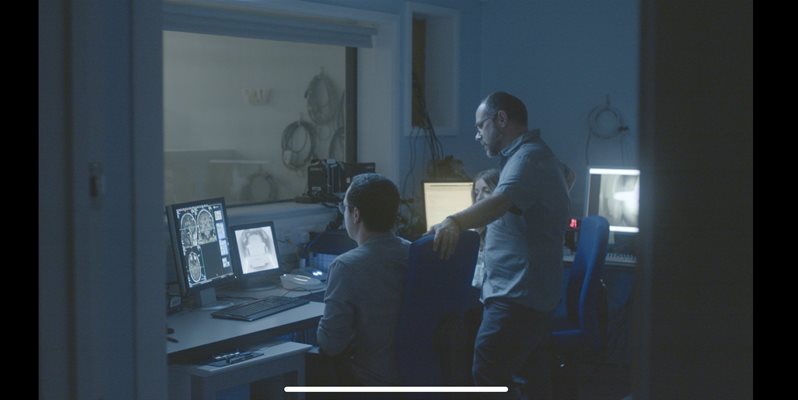A new brain imaging study led by researchers in the Colasanti Lab at Brighton and Sussex Medical School (BSMS) has uncovered how high ventilation breathwork can induce powerful altered states of consciousness (ASCs), similar to those experienced with psychedelic substances.
The research, published in PLOS ONE, is the first to use neuroimaging to map the neurophysiological changes that occur during these breathwork sessions. Using a type of quantitative MRI scan called ASL, the team examined how high ventilation breathwork affected brain blood flow. They found that more profound changes in blood flow in specific brain areas were linked to deeper sensations of unity, bliss, and emotional release, collectively known as “Oceanic Boundlessness.”
“These findings show that breathwork can reliably evoke profound mental states without the use of drugs,” said lead author Amy Kartar, Clinical and Neuroimaging Research Assistant at BSMS. “We observed clear changes in brain regions linked to emotion, memory, and bodily awareness.”

Researchers in the Clinical Neuroscience Department of Brighton and Sussex Medical School conducted breathwork research in a physiology lab and MRI scanner. Credit: Air Hunger documentary.
Key findings include:
- Reduced blood flow in the posterior insula and parietal operculum – areas involved in self-awareness – was linked to deeper ASC experiences.
- Increased blood flow in the amygdala and hippocampus suggested enhanced emotional memory processing.
- Despite increased physical arousal, participants reported reduced fear and negative emotions.
The study also highlighted the importance of environment. Participants in a calm lab setting reported more intense experiences than those in noisy MRI scanners or at home, echoing the “set and setting” principle known from psychedelic research.
With growing interest in non-pharmacological mental health therapies, the research opens new doors for understanding the potential therapeutic application of breathwork in clinical settings, particularly for conditions like PTSD, anxiety and depression.
Read the study ‘Neurobiological Substrates of Altered States of Consciousness Induced by High Ventilation Breathwork Accompanied by Music’ in full below.
Read the full study here >